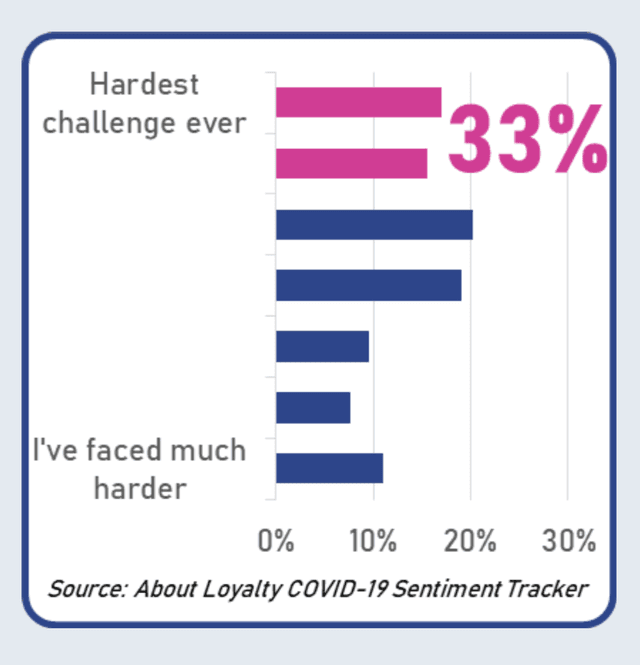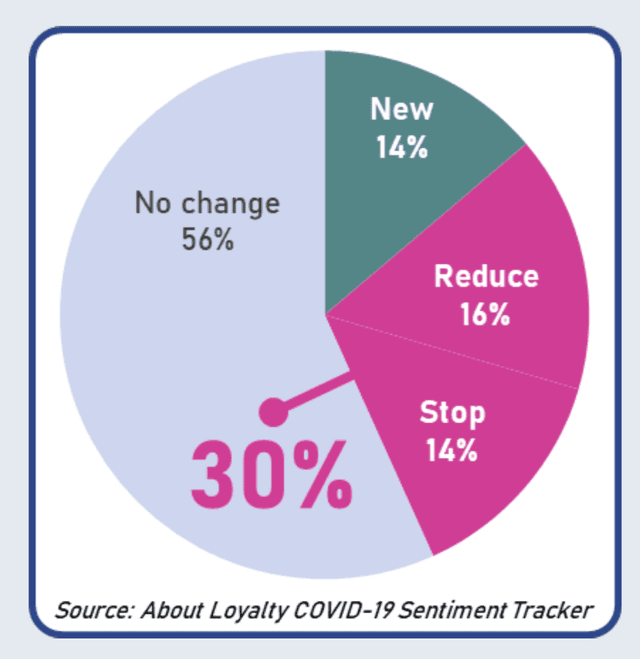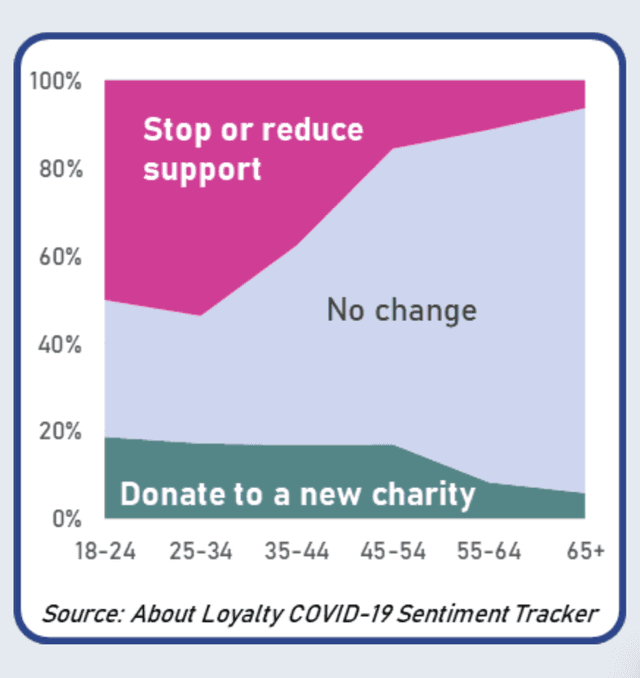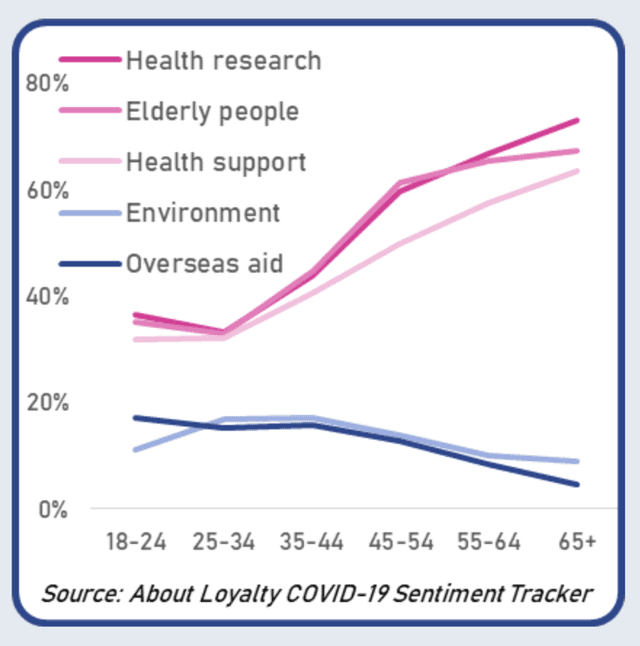Shocked and a little bit excited — how coronavirus will impact charity giving
Our thanks to Richard and Roger at agency About Loyalty for letting us share the first results of their sentiment tracker, which monitors how donors are feeling about giving during the coronavirus outbreak. We’ll bring you all their findings as they evolve.
- Written by
- Richard Spencer
- Added
- April 02, 2020

Firstly and most importantly, I sincerely hope that you, your family, friends and colleagues are fit and healthy and in good spirits during these extraordinary times.
When I saw the results of week 1 of the COVID-19 Sentiment Tracker I was shocked, challenged, and I hope not inappropriate, but a little bit excited.
It’s no secret that I enjoy a good spreadsheet and digging around in data. And it’s good to find positive distractions at the moment. It’s no exaggeration to say that what we learned after just one week is eye- opening, mind-blowing, thought-provoking and fundamentally essential for every charity today. Here are some of my initial take-outs for you.
This is the toughest challenge most of us have ever faced

We’re living in unprecedented times. One in three people believes that COVID-19 is the hardest challenge they have ever had to face.
And we’ve also seen this reflected in concerns for the NHS and particularly for friends and families. And there is real fear for the UK and global economies and for peoples own finances.
This crisis has the potential to hit charities hard.
30% of people say they intend to stop or reduce their donations

This relates specifically to whether they feel that the charities they support are helping people affected by COVID- 19. This matters.
There’s a real risk that for charities unable to directly help those affected by the crisis, that thirty per cent of supporters could choose to reduce or stop entirely their financial support.
It is reassuring to see that 56 per cent do not intend to make any changes to the charities they support, although this may change.
It’s inevitable that COVID-19 will impact charitable support.
Older donors are going to stick with their current charities through COVID-19

Looking in more detail at how people say they are going to behave, the older your supporters, the less likely they are to change their support as a result of COVID-19. That is the current situation, but clearly this may change and our weekly tracker will pick this up.
As things stand, this is reassuring and good news, since the majority of charity supporters are in the older age groups.
The number of younger people saying they are going to set up a donation to a new charity is highly encouraging. However the chances are this will come as a result of stopping or reducing an existing donation.
More than half of all people aged under 35 have said that they would reduce or stop supporting an existing charity if it wasn’t directly helping people affected by the virus.
Now could be a good time to re-focus messaging for younger supporters
Different charities have different challenges and opportunities

People regard charities that are less directly connected to COVID-19 as a lot less important. This becomes substantially more exaggerated with age.
Overseas aid and environment charities rank unusually low with younger supporters and this continues to decline with age.
Unsurprisingly, all age groups have cited elderly and health charities as the highest in terms of importance as compared with before the virus. This increases considerably with age.
The research also covers disability charities, which came in a close fourth behind health support charities and demonstrated a similar pattern. Other sectors tracked include children’s, armed forces, animal welfare, arts, local causes and others.
COVID-19 has already created change and we’re monitoring the situation weekly
So what do we take from this?
Already we’re seeing the massive impact that COVID-19 is having on our daily lives – personally and professionally; emotionally and practically.
This extends of course to how we feel about and support charities now and in the future. It also influences our expectations of the role of communities, government and others.
Things are changing really quickly. And some of these changes will be irreversible.
We set up the COVID-19 Sentiment Tracker to provide charities with evidence and facts; a foundation from which to make informed decisions to make sure that charitable causes are not unduly and negatively impacted by the fall-out of the virus.
We know that what we’ve learned this week will change rapidly and so we are conducting this research on a weekly basis and to help as many charities as possible.
You can find out more about the tracker here:

















